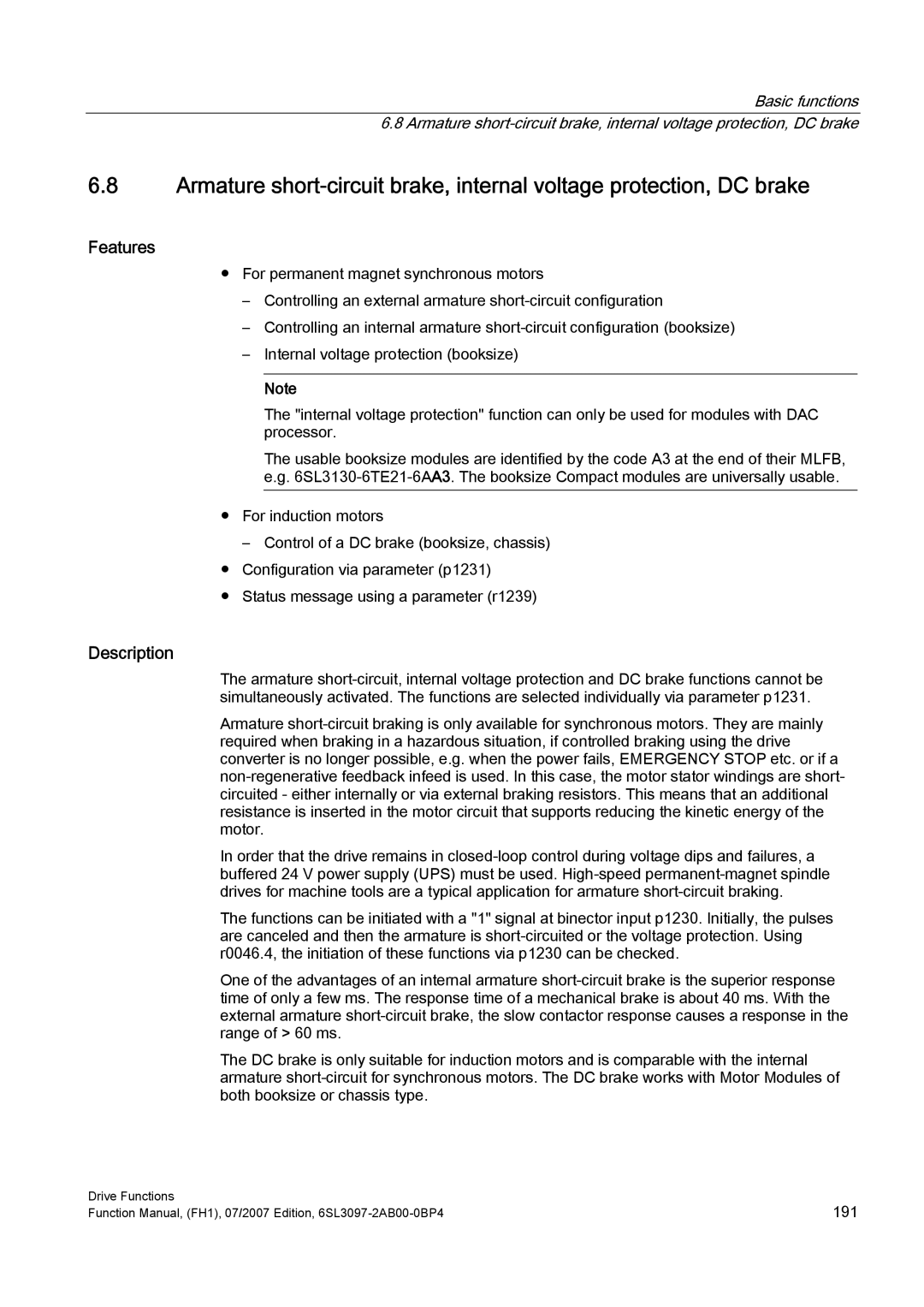
Basic functions
6.8Armature
6.8Armature
Features
●For permanent magnet synchronous motors
–Controlling an external armature
–Controlling an internal armature
–Internal voltage protection (booksize)
Note
The "internal voltage protection" function can only be used for modules with DAC processor.
The usable booksize modules are identified by the code A3 at the end of their MLFB, e.g.
●For induction motors
–Control of a DC brake (booksize, chassis)
●Configuration via parameter (p1231)
●Status message using a parameter (r1239)
Description
The armature
Armature
In order that the drive remains in
The functions can be initiated with a "1" signal at binector input p1230. Initially, the pulses are canceled and then the armature is
One of the advantages of an internal armature
The DC brake is only suitable for induction motors and is comparable with the internal armature
Drive Functions | 191 |
Function Manual, (FH1), 07/2007 Edition, |
